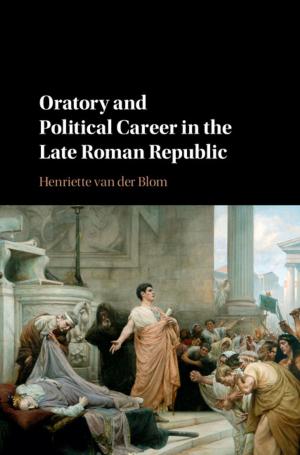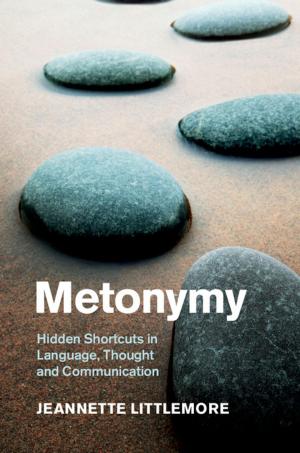The Ideology of Creole Revolution
Imperialism and Independence in American and Latin American Political Thought
Nonfiction, Social & Cultural Studies, Political Science, Politics, History & Theory, History| Author: | Joshua Simon | ISBN: | 9781108207102 |
| Publisher: | Cambridge University Press | Publication: | June 6, 2017 |
| Imprint: | Cambridge University Press | Language: | English |
| Author: | Joshua Simon |
| ISBN: | 9781108207102 |
| Publisher: | Cambridge University Press |
| Publication: | June 6, 2017 |
| Imprint: | Cambridge University Press |
| Language: | English |
The American and Latin American independence movements emerged from distinctive settings and produced divergent results, but they were animated by similar ideas. Patriotic political theorists throughout the Americas offered analogous critiques of imperial rule, designed comparable constitutions, and expressed common ambitions for their new nations' future relations with one another and the rest of the world. This book adopts a hemispheric perspective on the revolutions that liberated the United States and Spanish America, offering a new interpretation of their most important political ideas. Simon argues that the many points of agreement among various revolutionary political theorists across the Americas can be attributed to the problems they encountered in common as Creoles - that is, as the descendants of European settlers born in the Americas. He illustrates this by comparing the political thought of three Creole revolutionaries: Alexander Hamilton of the United States, Simón Bolívar of Venezuela, and Lucas Alamán of Mexico.
The American and Latin American independence movements emerged from distinctive settings and produced divergent results, but they were animated by similar ideas. Patriotic political theorists throughout the Americas offered analogous critiques of imperial rule, designed comparable constitutions, and expressed common ambitions for their new nations' future relations with one another and the rest of the world. This book adopts a hemispheric perspective on the revolutions that liberated the United States and Spanish America, offering a new interpretation of their most important political ideas. Simon argues that the many points of agreement among various revolutionary political theorists across the Americas can be attributed to the problems they encountered in common as Creoles - that is, as the descendants of European settlers born in the Americas. He illustrates this by comparing the political thought of three Creole revolutionaries: Alexander Hamilton of the United States, Simón Bolívar of Venezuela, and Lucas Alamán of Mexico.















